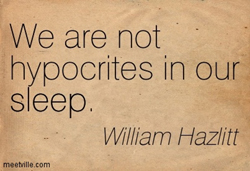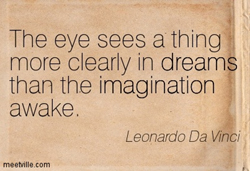More hours of sleep could be better for your career than extra work

Let’s face it, there’s only so much more that can be done with less. Fewer staff, working harder can only spike productivity so long, until diminishing returns sets in and leaves a team trashed.
American’s have definitely increased their working hours
- In the U.S., 85.8 percent of males and 66.5 percent of females work more than 40 hours per week.
- According to the International Labor Organization, “Americans work 137 more hours per year than Japanese workers, 260 more hours per year than British workers, and 499 more hours per year than French workers.”
More for less can only go so far  Between 1950 and 2000 increasing work hours drove a 400 percent increase in productivity but since then – the same period in which hours at work have increased the most – it’s either flatlined or fallen.
Between 1950 and 2000 increasing work hours drove a 400 percent increase in productivity but since then – the same period in which hours at work have increased the most – it’s either flatlined or fallen.
What to do about that? Let’s sleep on it.
I mean that literally, not figuratively because lack of sleep is sapping our collective creativity.
As Prof. Vatsal G. Thakkar notes, “We all get less sleep than we used to. The number of adults who reported sleeping  fewer than seven hours each night went from some 2 percent in 1960 to more than 35 percent in 2011.”
fewer than seven hours each night went from some 2 percent in 1960 to more than 35 percent in 2011.”
The Wall St. Journal has been on a tear about the cost of sleep debt (see Making the Business Case for Sleep), and twice this week featured front page advocacy to start the school day later to help teen sleep more. Indeed, Arianna Huffington comes right out and says it in her Ted Talk, How to succeed? Get more sleep?
Sleep is the interest we pay of life
Sleep’s best spokesperson may be Arthur Schopenhauer, the German philosopher from the 1800’s who described sleep as a way that the cosmos keeps its books balanced against the greedy human urge for ever more life.
Sleep is the interest we have to pay on the capital which is called in at death; and the higher the rate of interest and the more regularly it is paid, the further the date of redemption is postponed.
In Schopenhauer’s metaphor, at birth we receive the loan of consciousness borrowed from the void, leaving a hole in the emptiness. The hole grows bigger each day. But nightly, by yielding briefly to the darkness of sleep, we restore some of the emptiness to keep it at bay.
While he meant this figuratively, it turns out he might have been correct literally.
Sleep More, Freak Out Less
David Dinges, a sleep researcher from the University of Pennsylvania, was practically paraphrasing Schopenhauer when he said “Sleep is for recovery – that something is paid back or cleaned out.”
How does it do that? Well, during sleep the brain actually shrinks, opening up channels for the removal of toxins. Get a decent night’s sleep also lets the brain reinforce new memories, and get rid of cognitive clutter. It’s not just memories of things like parties, what you had for lunch or the name of your second grade teacher. It also helps improve your motor skills by reinforcing muscle memories.
It also slows cognitive aging. If you’re planning to work later in life, you may want to start retiring earlier each night. Western societies have rapidly increasing diagnoses of Alzheimer’s, ADD, and obesity, all of which of connect back to sleep deficits.
 Time on Media Now Exceeds Time Sleeping
Time on Media Now Exceeds Time Sleeping
We can’t blame all this lack of sleep on work ethic alone. As much as we would all like to claim we are checking our work email at 11pm the truth is we’re also looking at cat videos or playing TapKing Sports. As the BBC noted the average time spent on media now exceeds that spent sleeping.
And I love this part, according to the BBC, young adults squeeze in an average of over 14 hours of daily screen in just 9 hour, thanks to using multiple screens at once. Yes, there’s over achievement going on. But, I think we also know there’s a diminishing return to being chronically less than your best.
There’s also a cost. The World Health Organization estimates that the cost of sleep deprivation to American business is $63 billion a year. But the unseen costs of not paying our sleep debt, such as long-term health consequences and emotional happiness are hard to put a value against.
So tonight don’t stay up late to watch SportsCenter or Conan or…Wait, are you reading this post in the middle of the night? Silly irony, indeed.
Instead around 10 pm or whatever time is needed to get seven plus hours of sleep. Turn out the lights, you Type A characters go ahead and activate your FitBit’s sleep timer and go cuddle up with your Warren Buffet plushy, and let your brain shrink for a little clean-up.
Don’t think of it as going to bed early, think of it as restoring the economy from the inside out.
Coffee or not, nobody wants cranky creatives.
—-
Sleeping child image credit: rachel CALAMUSA

 The future of digital experiences will be built by strategists who grasp the full array of emerging business, social, and technical models. Specialties in user experience, branding, application design, and data science are laying the foundation for richer user experiences and business models breakthrough products and revenue based marketing.
The future of digital experiences will be built by strategists who grasp the full array of emerging business, social, and technical models. Specialties in user experience, branding, application design, and data science are laying the foundation for richer user experiences and business models breakthrough products and revenue based marketing.